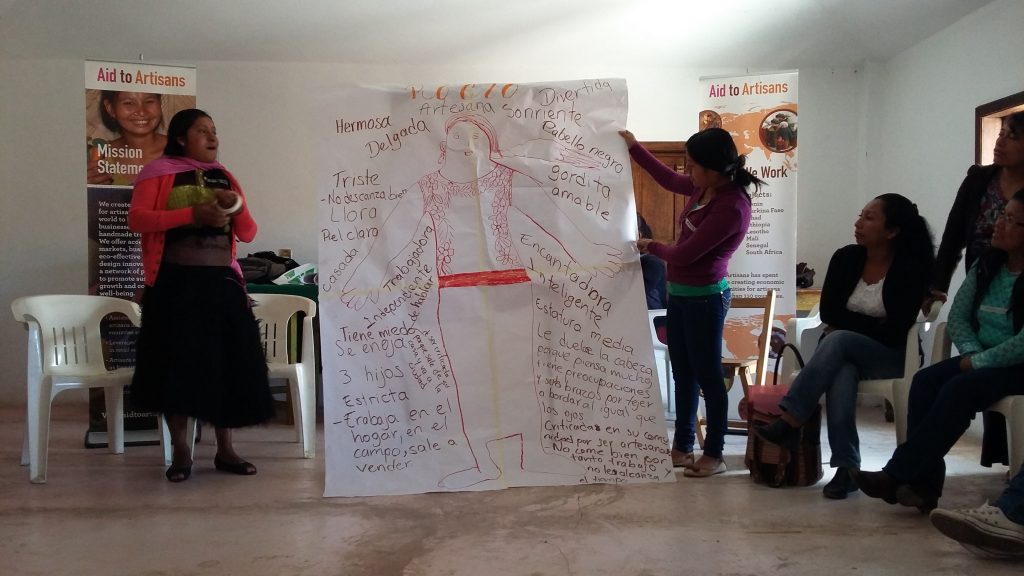With great enthusiasm, ATA Mexico has been successfully assisting 10 indigenous textile groups comprising of 310 artisans from neighboring villages of Chiapas region through our CASE Project. This intimate collaboration between artisans and de-signers that tells stories of Mexico through textiles and weaving. Part of CASE addresses gender issues deeply rooted in Maya society that constrain the development of artisan’s skills set and their business growth. With this in mind, ATA launched a new pilot to address this gender issues.
The program brought male and female artisans together to experience a revolutionary training during the months of September and October. ATA organized this first of its kind training with a goal to overcome cultural constraints that hinder women’s efforts to develop businesses. The workshop was geared toward both women artisans and their husbands. Traditionally, village women in Chiapas have raised children and done household chores, having little input into family decisions. In Chiapas, the husband is the head of the family. Women weavers—wives and mothers– knit and weave shawls and ponchos in groups as a social activity to pass time after their duties at home are completed.
Under the CASE project, women artisans have been encour-aged to work in a professional capacity to produce for domes-tic and international markets. This involves women travelling outside of the village to attend workshops, to procure raw ma-terial and network with similar organizations. Naturally, this change in their role has resulted pressures for women, their husbands and the family as a whole.
ATA Mexico staff and experts were given the task of carrying out a gender training plan pertaining to address the situation. Eight men and 31 women artisans participated in the work-shops that raised awareness of gender in relation to their situation. The participants exposed the challenges, and opportunities in the new role of the women so that they could work in favorable family and social conditions. Mixed-gender groups were formed that led to open discussion where the men and women expressed themselves freely and understood each other’s perspectives. Based on these interactions they developed strategies to support each other as individuals and as a family unit. An immediate change noticed as a result of the workshop was the difference in behavior of group leaders; they became more confident about speaking in public and exchanging ideas.
“Having joined the ATA project, participating, traveling, finding value in their work, knowing that there is a market to sell their handicrafts gives women security, satisfaction and makes them happy” stated an artisan’s husband, who participated in the workshop.
Men who attended the workshop were more open to helping their wives by attending to infants and small children while their spouse worked on the loom in the evenings. A couple of men have shown interest in the work by getting involved in the process of weaving, procuring raw material and helping the women add finishing touches.
The gender workshop was a success, broadening the scope of activities open to women artisans. Men who were initially uncomfortable about their wives travelling outside the village have now gained an understanding of why that is necessary for the women to do their crafts and develop their skills. The women have been empowered. These otherwise shy and quiet women artisans have new-found confidence and are open to innovation, trying new designs, learning new skills and networking with others weavers to promote their products. We look forward to them becoming independent, confident artisans and sharing their skills with the world.






